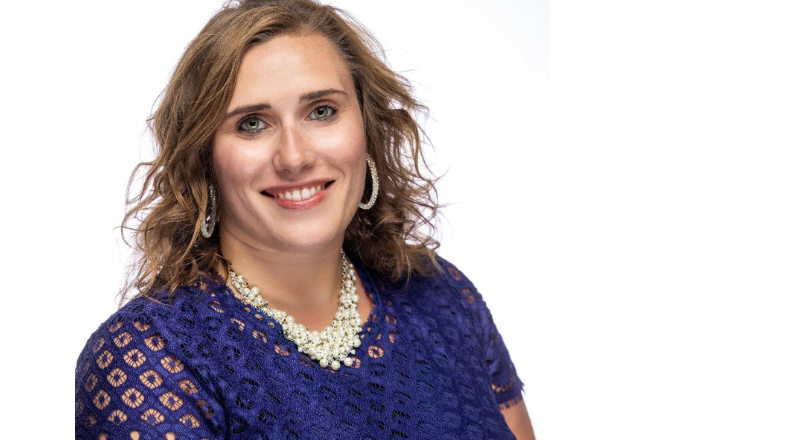Emerging Leader Commonly Asked Questions with Madelyn Martinec, MBA

In this Voices of Emerging Leaders Spotlight, we asked Madelyn, a member of AFP’s Emerging Leaders Affinity Group, to share her answers to some commonly asked questions from young professionals on topics like job hopping, salary negotiations, and speaking up in meetings.
Q: Can you introduce yourself, tell us briefly how you got into fundraising, and where you currently are in your career?
A: I’m the development director at REAL Services in South Bend, Indiana. I’ve always enjoyed helping other people and as I grew up, I thought of different career options, but none of them stuck. When I was in college, I interned at our local food bank and fell in love with nonprofit work. After my first internship, I was able to tailor my college experience to working with nonprofits. After college, I worked in programming then transitioned to volunteer management. From there, I started in a fundraising role at my current organization and then transitioned to development director in 2022.
Q: When you’re first getting started in your career, is there a length of time that you should stay at a job? Is it more acceptable now to “job hop” early in your career, where twenty years ago that may have had negative connotations for potential employers.
A: When you’re first starting your career, I think it’s great to stay at a job for however long you feel fulfilled and if you are giving your all to the position you’re in. I left a job after six months because I was more interested in a volunteer management position at my local homeless center, and I knew I could make a greater impact. Looking back, that was the right decision to make because I use so much of what I learned from that role in my fundraising position now. Don’t give up your job after a day, but if you feel you’re called to be at another organization or in a different position, be confident enough to make that change because it will not only benefit you, but the organization as well.
Q: What advice do you have for people who may be intimidated about sharing their ideas when they’re the most junior position in the room?
A: Find a mentor who will serve as your advocate in your organization. Having someone who will encourage you to use your voice is so important. Most importantly, take ownership and believe in what you are saying. You may have an idea that someone else was too afraid to share, so speak up when you feel called to do so.
Q: Are there any myths or stereotypes that you want to dispel about young professionals and the millennial or Gen Z generation that you think persist in the workplace?
A: One of the most common stereotypes I hear across industries is that millennial and Generation Z want praise for everything — commonly referred to as the “everyone gets a trophy generation.” When I was a child, I played soccer for four years. By “play” I mean that I sat on the sidelines and mostly worried about the snacks at the end of the game. I received a trophy at the end of the year anyways. Did I deserve any of those trophies? No. I am fully aware I did nothing to receive a trophy. While there were many instances when millennials and Generation Z received actual trophies for things we didn’t deserve, we’re all old enough and self-aware to know that now. Keep in mind, we also weren’t the ones handing out the trophies to everyone. What we mostly want in the workplace is just to receive a genuine “thank you” when we reach a personal goal or accomplishment. We grew up with a lot of focus on teamwork so we’re always glad to give praise when it is due too.
Q: How do you make your resume stand out when you don’t have an extensive amount of previous experience?
A: Talk to any mentors you have about serving as a reference for you or ask them to write you a letter of recommendation. Also, highlight your internship and volunteer experience on your resume.
Q: What’s the most important factor to you when deciding where to work, or whether or not to stay at a current position?
A: I think the most important factor to decide where to work or stay in a current position is to really look into the organization’s ethics. This is essential if you are seeking a fundraising position. If the organization isn’t ethical or there are red flags, it may not be a good fit.
Q: If you’re trying to transition into a role that would require you to manage other employees, but you’ve never had direct reports before, how do you make up for that lack of experience? Are there other traits or experiences that you should point to when asked about this in the interview?
A: If you have held a volunteer leadership role in which you had the responsibility of supervising other volunteers or overseeing a project, you can highlight those experiences in an interview. If you don’t have those experiences, you can note that you have characteristics that will make you a good supervisor, such as dependability, conflict-resolution skills, problem solving, the ability to delegate, and empathy. You have to start somewhere, so when you are in your first management role, don’t be afraid to find a mentor and ask for help when needed.




